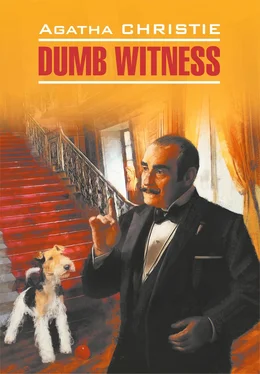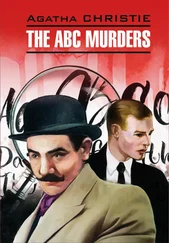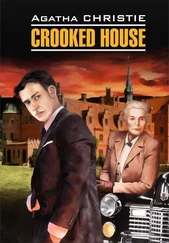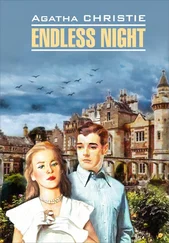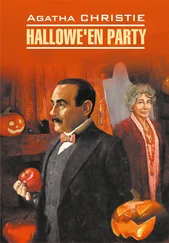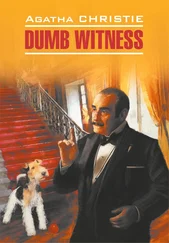‘I insist on making my protest! Disgraceful, that’s what it is! Disgraceful!’
Poirot went on unheeding.
‘I was saying that if Miss Lawson staged that accident she did so for an entirely different reason—that is, she engineered it so that Miss Arundell would naturally suspect her own family and become alienated [600] to become alienated – отстраняться
from them. That was a possibility! I searched to see if there were any confirmation or otherwise and I unearthed one very definite fact. If Miss Lawson wanted Miss Arundell to suspect her own family, she would have stressed the fact of the dog, Bob, being out that night. But on the contrary Miss Lawson took the utmost pains to prevent Miss Arundell hearing of that. Therefore, I argued, Miss Lawson must be innocent.’
Miss Lawson said sharply:
‘I should hope so!’
‘I next considered the problem of Miss Arundell’s death. If one attempt to murder a person is made, a second attempt usually follows. It seemed to me significant that within a fortnight of the first attempt Miss Arundell should have died. I began to make inquiries.
‘Dr Grainger did not seem to think there was anything unusual about his patient’s death. That was a little damping to my theory. But, inquiring into the happenings of the last evening before she was taken ill, I came across a significant fact. Miss Isabel Tripp mentioned a halo of light that had appeared round Miss Arundell’s head. Her sister confirmed her statement. They might, of course, be inventing—in a romantic spirit—but I did not think that the incident was quite a likely one to occur to them unprompted. When questioning Miss Lawson she also gave me an interesting piece of information. She referred to a luminous ribbon issuing from Miss Arundell’s mouth and forming a luminous haze round her head.
‘Obviously, though described somewhat differently by two different observers, the actual fact was the same. What it amounted to, shorn of spiritualistic significance, was this: On the night in question Miss Arundell’s breath was phosphorescent! ’
Dr Donaldson moved a little in his chair.
Poirot nodded to him.
‘Yes, you begin to see. There are not very many phosphorescent substances. The first and most common one gave me exactly what I was looking for. I will read you a short extract from an article on phosphorus poisoning.
‘ The person’s breath may be phosphorescent before he feels in any way [601] in any way – в какой-либо мере
affected. That is what Miss Lawson and the Misses Tripp saw in the dark—Miss Arundell’s phosphorescent breath—“a luminous haze”. And here I will read you again. The jaundice having thoroughly pronounced itself, the system may be considered as not only under the influence of the toxic action of phosphorus, but as suffering in addition from all the accidents incidental to the retention of the biliary secretion in the blood, nor is there from this point any special difference between phosphorus poisoning and certain affections of the liver—such for example as yellow atrophy .
‘You see the cleverness of that? Miss Arundell has suffered for years from liver trouble. The symptoms of phosphorus poisoning would only look like another attack of the same complaint. There will be nothing new, nothing startling about it.
‘Oh! It was well-planned! Foreign matches—vermin paste? It is not difficult to get hold of phosphorus and a very small dose will kill. The medicinal dose is from 1/100 to 1/30 grain.
‘Voilà [602] Voilà – (фр.) Вот
. How clear—how marvellously clear the whole business becomes! Naturally, the doctor is deceived—espe- cially as I find his sense of smell is affected—the garlic odour of the breath is a distinct symptom of phosphorus poisoning. He had no suspicions—why should he have? There were no suspicious circumstances and the one thing that might have given him a hint was the one thing he would never hear—or if he did hear it he would only class it as spiritualistic nonsense.
‘I was now sure (from the evidence of Miss Lawson and the Misses Tripp) that murder had been committed. The question still was by whom? I eliminated the serv- ants—their mentality was obviously not adapted to such a crime. I eliminated Miss Lawson since she would hardly have prattled on about luminous ectoplasm if she had been connected with the crime. I eliminated Charles Arundell since he knew, having seen the will, that he would gain nothing by his aunt’s death.
‘There remained his sister Theresa, Dr Tanios, Mrs Tanios and Dr Donaldson whom I discovered to have been dining in the house on the evening of the dog’s ball incident.
‘At this point I had very little to help me. I had to fall back upon [603] to fall back upon smth – прибегать к ч.-л.
the psychology of the crime and the personality of the murderer! Both crimes had roughly the same outline. They were both simple. They were cunning, and carried out with efficiency. They required a certain amount of knowledge but not a great deal. The facts about phosphorus poisoning are easily learned, and the stuff itself, as I say, is quite easily obtained, especially abroad.
‘I considered first the two men. Both of them were doctors, and both were clever men. Either of them might have thought of phosphorus and its suitability in this particular case, but the incident of the dog’s ball did not seem to fit a masculine mind. The incident of the ball seemed to me essentially a woman’s idea.
‘I considered first of all Theresa Arundell. She had certain potentialities. She was bold, ruthless, and not over scrupulous. She had led a selfish and greedy life. She had always had everything she wanted and she had reached a point where she was desperate for money—both for herself and for the man she loved. Her manner, also, showed plainly that she knew her aunt had been murdered.
‘There was an interesting little passage between her and her brother. I conceived the idea that each suspected the other of the crime. Charles endeavoured to make her say that she knew of the existence of the new will. Why? Clearly because if she knew of it she could not be suspected of the murder. She, on the other hand, clearly did not believe Charles’ statement that Miss Arundell had shown it to him! She regarded it as a singularly clumsy attempt on his part to divert suspicion from himself.
‘There was another significant point. Charles displayed a reluctance to use the word arsenic. Later I found that he had questioned the old gardener at length [604] at length – подробно
upon the strength of some weed-killer. It was clear what had been in his mind.’
Charles Arundell shifted his position a little.
‘I thought of it,’ he said. ‘But—well, I suppose I hadn’t got the nerve.’
Poirot nodded at him.
‘Precisely, it is not in your psychology. Your crimes will always be the crimes of weakness. To steal, to forge—yes, it is the easiest way—but to kill— no ! To kill one needs the type of mind that can be obsessed by an idea.’
He resumed his lecturing manner.
‘Theresa Arundell, I decided, had quite sufficient strength of mind to carry such a design through, but there were other facts to take into consideration. She had never been thwarted, she had lived fully and selfishly—but that type of person is not the type that kills —except perhaps in sudden anger. And yet—I felt sure— it was Theresa Arundell who had taken the weed-killer from the tin .’
Читать дальше
Конец ознакомительного отрывка
Купить книгу
